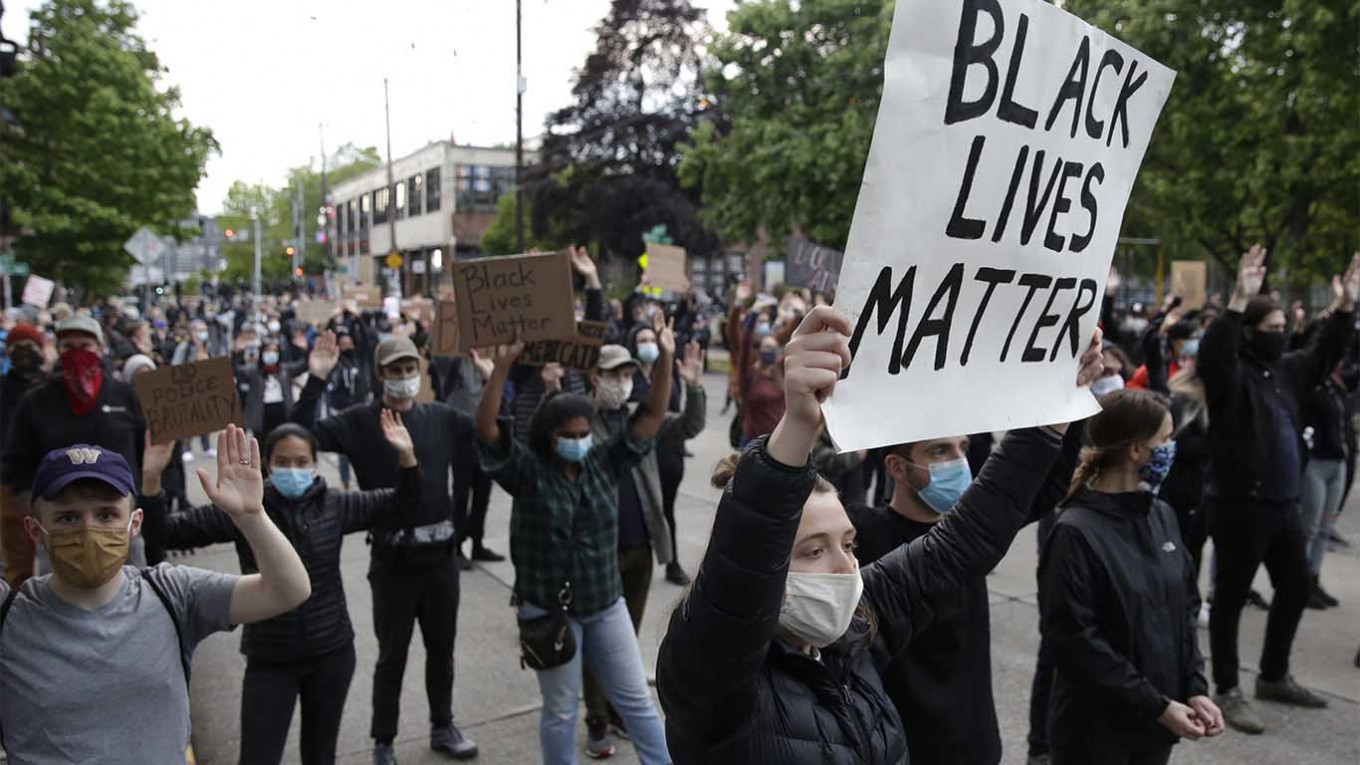In Russia today, it feels just like there is a gathering storm. But no one knows anything about it. It’s like on a hot and oppressive summer day when there is barely a hint of storm clouds on the horizon, there isn’t even a short clap of thunder and it won’t rain, but all the same you’re anxious, and you hurry home because you don’t just feel it — you know that something terrible is about to happen. Even though of course there are no obvious signs of the gathering storm.
Taken alone, the results of public opinion polls measuring popular support for President Vladimir Putin or people’s willingness to take part in protests are not enough to gauge the current political climate.
We could, instead, look to the forecasts of political scientists, of course, but they are worth about as much as the visions of a fortuneteller gazing at coffee grounds. Then there are the classic conversations held in Russian kitchens in which ordinary citizens disparage not so much the government as the tragi-farce that modern life has become. Or else we could look for signs in the enormous number of disputes raging on social networks.
But none of these factors can tell us if or when mass unrest might erupt in Russia following the July 1 vote on Putin’s constitutional amendments. And, although the answer to this question concerns everyone — from the ruling elite and the opposition to civil rights activists and ordinary citizens — nobody can say with any certainty what the future holds.
Everyone is stupefied by events and simply waiting, without moving, to see what happens next.
Here and there, though, people are emerging from this stupor. The opposition started small, with individual picketers standing outside police stations. But in Kafkaesque fashion, even they were blocked, with the authorities repeatedly classifying individual protestors as “mass meetings” in violation of quarantine.
The Moscow police have detained dozens of individuals in recent days, not only for picketing singly, but also for wearing masks with inscriptions and even for carrying balloons with messages written on them.
The Russian authorities are also resuming their political activity, and have set a date for voting on constitutional amendments that would allow Vladimir Putin to remain in power until 2036.
But that announcement, along with the individual protestors, still seem more a part of the general stupor than of an acute political struggle. It is as though both sides are still waiting for the storm to hit.
This is especially clear against the backdrop of the worsening storm in the United States. Russians are more than just fascinated by the images of the mass protests in response to George Floyd’s death — perhaps the largest that country has seen since the 1960s: they are spellbound by them, along with all people everywhere.
If you have been reading Russian social networks these days, you might have gotten the impression that all the people actively commenting live in the U.S. It seems that everyone has something to say on the subject. Some condemn the abuse of power and the cruelty and rejoice to see a police station in flames while others refer to the protestors as bandits and looters.
This is not just some half-hearted debate: people are arguing until they are hoarse. There is name-calling, invective and users blocking each other from their accounts. It has reached the point where some people are drawing parallels with Russia’s Civil War and referring to the U.S. demonstrators as “Bolshevik scum.”
In short, emotions are boiling over. People are posting from morning until evening about what and who should burn, while others insist that those setting the fires should be shot.
Maybe it would all be comical. These people can’t even bring themselves to go out and do a solo picket in Moscow where not a single window was broken during the lock-down. But it’s not really funny at all — maybe because of that smothering premonition of the gathering storm.
A Message from The Moscow Times:
Dear readers,
We are facing unprecedented challenges. Russia's Prosecutor General's Office has designated The Moscow Times as an "undesirable" organization, criminalizing our work and putting our staff at risk of prosecution. This follows our earlier unjust labeling as a "foreign agent."
These actions are direct attempts to silence independent journalism in Russia. The authorities claim our work "discredits the decisions of the Russian leadership." We see things differently: we strive to provide accurate, unbiased reporting on Russia.
We, the journalists of The Moscow Times, refuse to be silenced. But to continue our work, we need your help.
Your support, no matter how small, makes a world of difference. If you can, please support us monthly starting from just $2. It's quick to set up, and every contribution makes a significant impact.
By supporting The Moscow Times, you're defending open, independent journalism in the face of repression. Thank you for standing with us.
Remind me later.








